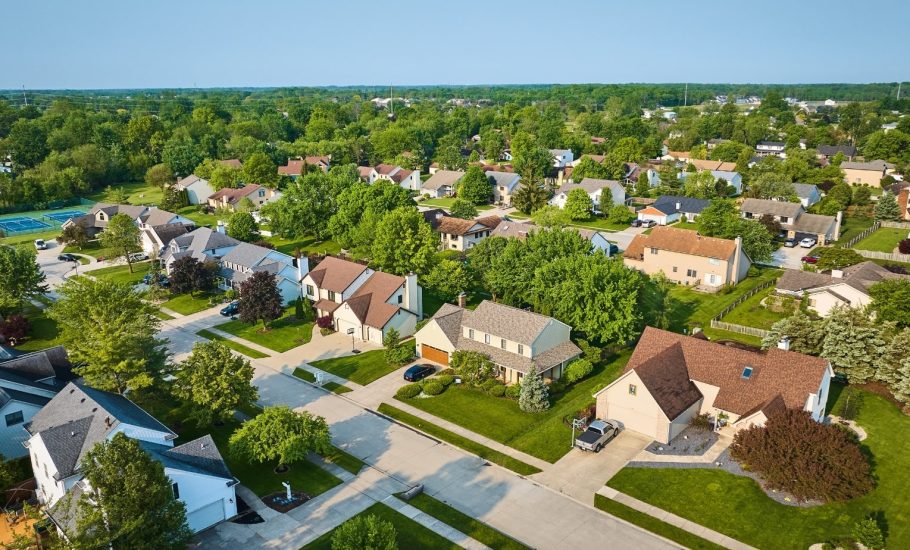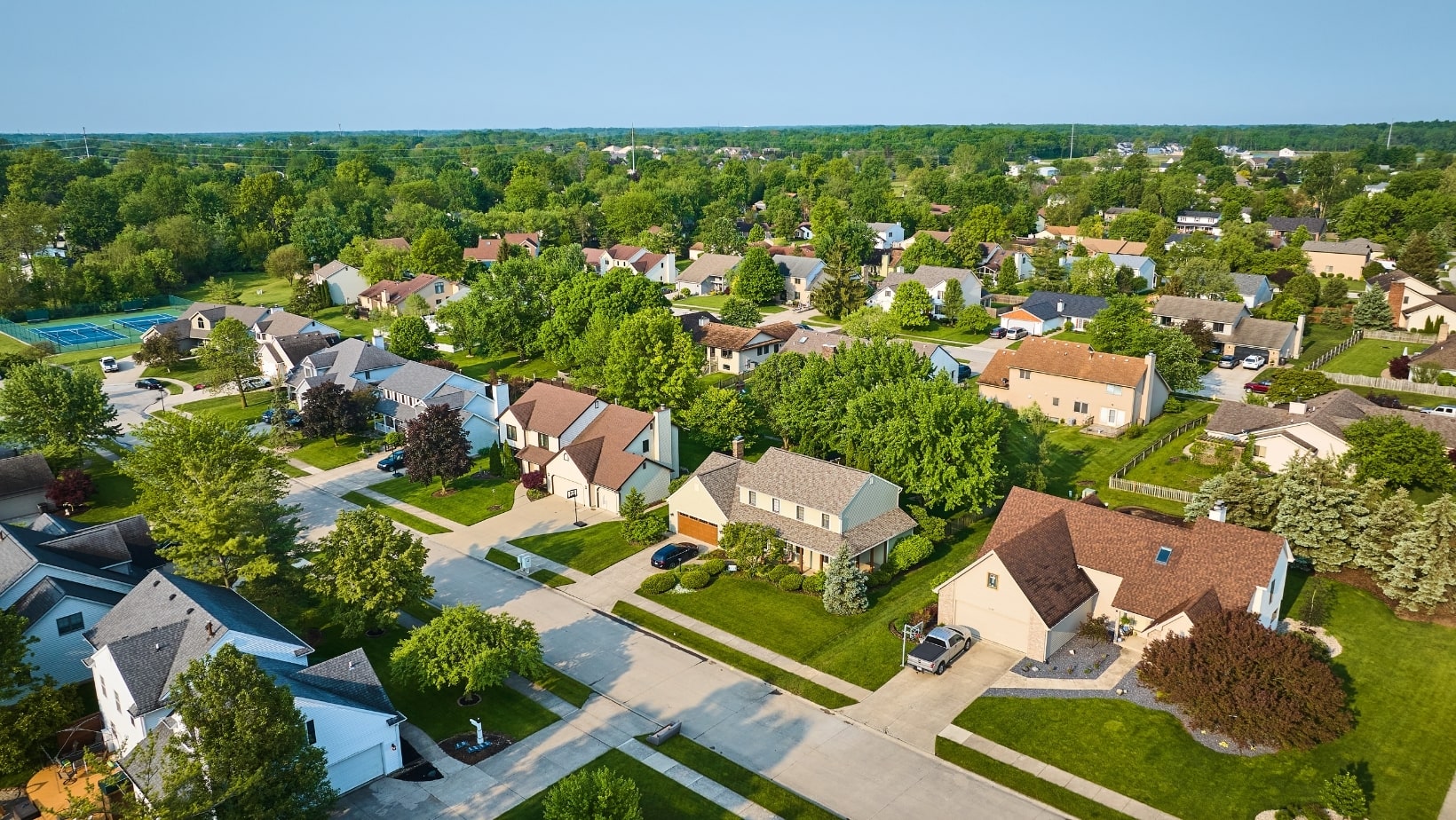According to the Community Associations Institute, nearly 30% of homeowners live in communities managed by an HOA (Homeowners Association). That’s a significant number of people relying on these organizations for the upkeep of their neighborhoods.
But what happens if an HOA runs out of money? It’s a scenario no one wants to imagine, yet it’s more common than you might think.
HOAs are crucially responsible for the community’s financial management, taking care of everything from lawn care to major repairs. The financial decisions made by them can make or break the community’s appeal and functionality.
Thus, the importance of an HOA making wise choices can’t be overstated, as the well-being of the entire community hangs in the balance.
So, let’s not beat around the bush and explore what happens when an HOA’s coffers run dry and what can be done to fix it.

What Are the Common Causes for Financial Shortfalls in HOAs?
Financial shortfalls in homeowners associations can be a real headache, but understanding why they happen can help you avoid these pitfalls.
Here are some usual reasons why HOAs might find themselves strapped for cash:
1. Large Or Unexpected Expenses
Ever had your car break down at the worst possible moment? That’s what it’s like when an HOA faces unexpected costs.
Imagine the main water line has burst, causing a flood that threatens to shut down the pool and damage nearby properties. The repair costs? Sky-high.
Or think about a sudden lawsuit that seemed minor at first but ended up requiring expensive legal fees that keep piling up.
These situations can come out of nowhere, and if the homeowners association isn’t prepared, the costs can quickly drain the funds.
2. Poor Financial Planning and Budgeting
Now, think about the volunteers on your HOA board. They might be well-meaning neighbors who stepped up to help, but what if they don’t have a strong background in finance?
If an HOA doesn’t plan its finances well, trouble isn’t far behind. Planning for a year’s worth of expenses can be full of guesswork and uncertainty.
Therefore, some board members might forecast the estimated cost of future expenses inaccurately. When that happens, the HOA’s annual budget falls short.
3. Insufficient Reserve Funds
A reserve fund is essentially the HOA’s savings account. These are cash reserves set aside for those big, inevitable expenses like capital improvements or repairing severe damage from natural disasters.
However, some HOAs might underfund the reserve account in an effort to keep monthly dues low and homeowners happy.
If the HOA reserve fund money is too low, there’s no cushion to fall back on when high-ticket expenses like repair and replacement obligations arise. This can lead to financial stress.
4. Delinquent Payments From Homeowners
Usually, HOAs collect periodic dues on time. But what if a few of your neighbors who’ve lost their jobs or are dealing with unexpected medical bills start missing their HOA payments?
When individual homeowners fall behind on their periodic dues, the entire community’s cash flow takes a serious hit. It’s like a chain reaction: one missed payment leads to another, and soon, the HOA doesn’t have enough money to cover its regular expenses, let alone any emergencies.
What Are the Consequences of an HOA Running Out of Funds
Running out of funds can turn a well-managed HOA into a chaotic organization. Nobody likes to see their community suddenly fall apart, but that’s the reality when an HOA doesn’t have enough cash reserves.
Here’s what happens when an HOA runs out of money:
1. Suspension of Essential Services
The first sign of trouble is often the suspension of essential services. Without funds, the HOA can no longer pay for landscaping or ongoing daily maintenance.
Suddenly, minor repairs in common areas become significant issues because there’s no budget for ongoing operation costs.
Providing janitorial service becomes harder, and cleaning and trash collection become irregular. The pristine community that once drew you in begins to deteriorate.
2. Delay or Cancellation of Planned Community Projects
Remember those exciting plans for a new playground or the upgraded community center? Maybe you imagined your kids playing on new swings or yourself partying in a refurbished hall.
Without money, these projects are either delayed or canceled altogether. It’s not just disappointing; the community misses out on what could enhance their quality of life and property values.
3. Impact on Community Amenities
Community amenities like pools, gyms, and clubhouses are among the first casualties of the low funds. They might close down, or worse, fall into disrepair.
Imagine paying your HOA monthly fee and not being able to swim in the pool during the hot summer months or finding broken-down fitness equipment in the gym. It’s frustrating and can lead to a lot of resentment among residents.
4. Decreased Property Values
This one’s a big deal. As the community’s aesthetics and facilities decline, so do property values. People are less likely to invest in a home where the HOA isn’t maintaining the standards.
It’s a domino effect: poor maintenance leads to dissatisfaction among current residents, which then leads to more people moving out or refusing to pay their dues, aggravating the financial crisis.
5. Legal Disputes
Running out of money isn’t just inconvenient; it can also be legally risky. Failing to comply with local regulations can result in hefty fines.
There could be disputes with contractors who haven’t been paid, leading to lawsuits. Plus, residents might start suing the HOA for failing to uphold its responsibilities.
It’s a legal predicament that can drag on for years and further drain any remaining resources.

What Steps Can an HOA Take to Avoid a Financial Crisis?
Imagine the HOA board members gathered for their quarterly meeting. Suddenly, the conversation shifts to finances, and there’s a collective gasp — what if the HOA runs out of money?
It sounds like a plot twist from a drama series, but it doesn’t have to be a nightmare. Let’s dive into some practical solutions and preventative measures to avoid financial setbacks.
1. Strategic Planning
First things first, let’s talk about planning. I know, it’s not the most exciting topic, but it’s absolutely crucial.
Have you ever planned a road trip? It’s just like that; you wouldn’t just hop in the car and drive aimlessly. Implementing better financial planning and budgeting practices means setting a clear path for your HOA’s finances.
By setting realistic financial goals and carefully tracking expenses, your HOA can anticipate and address potential problems before they become crises.
2. Have an Adequate Reserve Fund
Imagine the community pool suddenly needs a major repair just before summer. Panic time, right? Not if your HOA has an adequately funded reserve fund.
This fund is your community’s stash for a rainy day. A well-maintained reserve fund helps your HOA handle sudden repair and replacement costs without breaking a sweat.
The reserve study anticipates exactly how much to save for future financial needs so you’re not caught off guard.
3. Levy Special Assessments
Let’s face it — special assessments aren’t anyone’s favorite topic. Nobody loves extra fees, but sometimes they are necessary.
A special assessment is an HOA’s way of saying, ‘Hey, we need a bit more from everyone to get this big project done.’ Regularly reviewing and adjusting special assessments ensures your HOA has the funds it needs to address immediate concerns.
It helps the homeowners association to keep up with important projects without draining the reserves.
4. Get an HOA Loan
Sometimes, despite our best efforts and even the perfect planning, the unfortunate happens and you might need extra financial help. That’s where HOA loans come into play; they provide the flexibility to manage finances efficiently.
These loans can provide immediate relief and help fund essential projects that would otherwise be out of reach. It’s like having a credit card for your community – you get the funds you need now and pay them back over time.

Final Reflections
So, what happens if your HOA runs out of money? In a nutshell, it’s a challenging situation, but one that can be avoided with a bit of foresight and planning.
A financially stable HOA means smooth operations, well-maintained properties, and a happy community. From diligent budgeting and reserve planning to exploring funding options, these steps are all-important.
And remember, getting professional help is essential when it comes to dealing with finances and securing loans. It ensures you have expert advice tailored to your community’s unique needs.
So, now is the time for action; if you can smell the funds getting dry, don’t wait for a crisis to strike. Work with industry specialists to get tailored financial advice that fits your HOA’s needs.
Contact us today for expert guidance and support in managing your HOA’s finances and securing the right loan solutions if needed.



